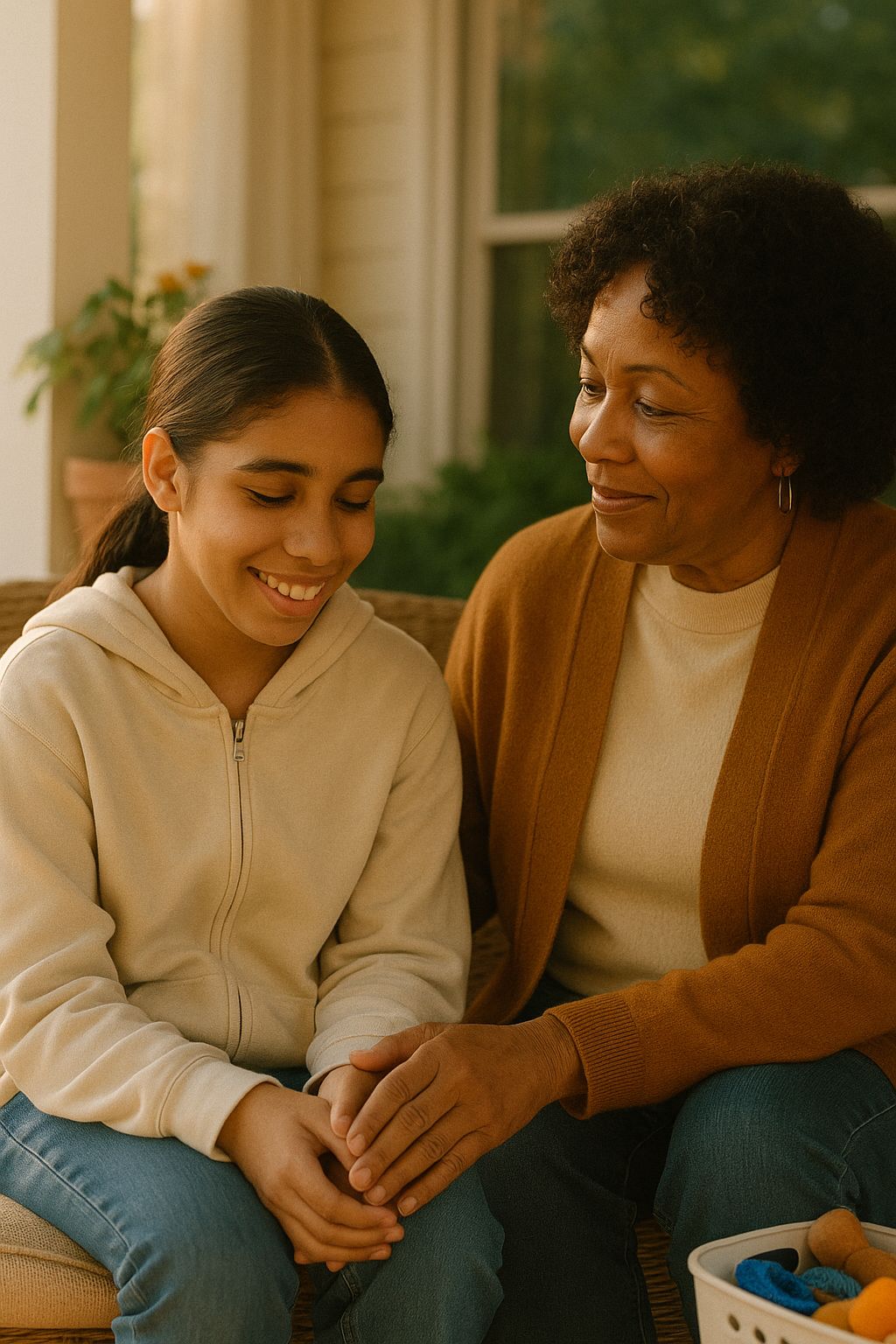- Sandra Evangelista, RN, MSN, CNML
- Posts
- Why “I Don’t Know” Might Be the Most Honest Answer a Teen Can Give
Why “I Don’t Know” Might Be the Most Honest Answer a Teen Can Give
Rise Through Becoming
Listening Beyond the Words: Supporting Teenage Girls in a Noisy World
There’s something beautiful—and sometimes heartbreaking—about the teenage years, especially for girls. They’re discovering who they are, who they’re not, and what the world expects of them… all while trying to survive school, social media, and the tidal wave of emotions and changes happening inside and around them.
As someone who has worked with many teen girls—through my coaching practice and at home raising my granddaughter—I can say this: we need to truly listen to them. Not just hear their words, but deeply understand their fears, doubts, dreams, and silences.
I remember working with one young teen who quietly responded to a question with, “I don’t know.” She immediately looked down, bracing for correction. I simply told her, “It’s okay not to know. That’s why we’re here—this is a journey of self-discovery.”
At the end of the session, she thanked me. She said, “No one ever lets me say ‘I don’t know.’ Adults always tell me that’s not an acceptable answer.”
That statement stopped me in my tracks. I realized I’d done the same with my own grandkids. How many times had I said, “That’s not an answer,” when asking why the chores weren’t done? From that day on, I changed my approach.
Now when I hear, “I don’t know,” I simply respond, “Think about it. Let me know by the time the chore is done.” And you know what? I get real answers. “I forgot.” “I didn’t feel like it.” And I thank them for being honest.
Communication with the teens in my life has dramatically improved since letting go of the need for immediate answers and giving space for reflection instead.
Teen girls today are under so much pressure. Many are socially awkward, caught in negative self-talk, and unsure how to express what they’re feeling. Conversations don’t come easily, and connection can feel out of reach. But if we offer them patience, compassion, and room to be unsure—they open up.
Helping teens find confidence in who they are means giving them permission to explore, fail, wonder, and yes—even say “I don’t know.”
And hey—if I can make progress with teenagers, maybe there’s still hope I can teach the dogs to put their toys back in the bin when they’re done playing. 😉
Let’s keep showing up, listening deeper, and reminding our girls (and ourselves) that it’s okay to not have it all figured out.

“This is the kind of connection that changes everything.”
With heart,
Sandra Evangelista
RN, MSN, CNML | Life Coach | Grandmother-in-the-Trenches